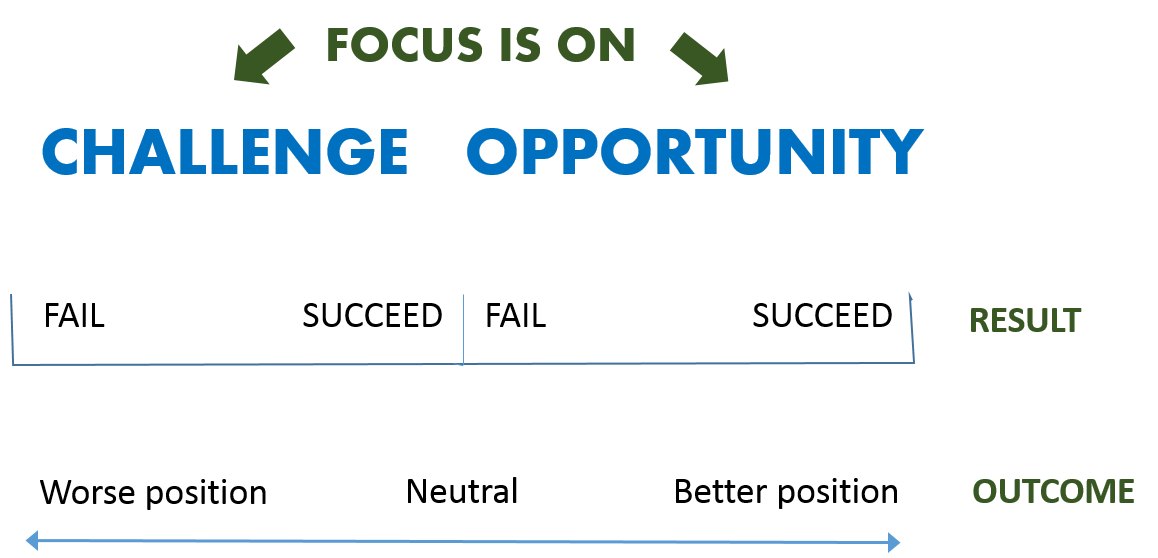Positive change leader
Change is the only constant (however inconsistent this statement might sound).
Hand in hand with organisational change come the inevitable challenges. Traditionally we focus most effort and resource in an attempt to overcome these challenges.
Yet all too often we do not recognise that the negative connotations associated with challenge are potentially outweighed by the positive outcomes that can result from the successful management of opportunities.
So why do we continue to focus on the challenge rather than the opportunity? The reason is to be found in the way we learn from experience and in particular from our experience of failure. Our natural preference is to find ways to mitigate the challenges offered by change to maintain the status quo, the known, the certain and familiar.
If all leaders followed this mitigation strategy, progress in organisations would be very limited.
Some individuals and companies manage change more effectively than others? What differentiates these from others?
A recent panel discussion lead by PCA in Bristol, produced a list of six key character components that might help identify who might be best suited to lead positive change. These component characteristics include
- attitude to change,
- personality and behavioural style,
- risk tolerance,
- personal success drivers,
- perspective including the ability to create an inspiring future vision, and
- trust (in self and in others).
An individual’s score in each trait, and the weighting of each trait given the context for change, suggests who would be most effective given a particular circumstance.
Just as the context for change alters the balance between these scalable assessments, the person who successfully manages one period of change is not necessarily the right person to lead on the next opportunity. This assessment methodology raises one key question for leaders in today’s rapidly changing business environment.
If the most appropriate person to lead positive change is not the leader of the organisation, how do they avoid becoming more of a hindrance to the process than an asset?
This demands an advanced set of leadership skills including the ability to develop, guide and trust others. Leaders need to create space and resource necessary for investment in an opportunity to have maximum chance of success. Having delegated responsibility they need to manage the risks, be accountable and ultimately responsible for the results. This is a challenge in itself as the change management strategy might seem counter to their own assessment of the situation and opportunities outside their comfort zone.
For a leader, ceding this level of control and risk is uncomfortable. This discomfort increases when the individual doesn’t fit the mould of those employees most suited to maintaining the status quo.
To find out more about positive change leadership contact your nearest PCA office one of our directors will arrange a no strings exploratory meeting.

